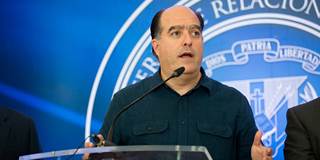
Justice Without Borders for Venezuela
With Venezuela’s humanitarian catastrophe worsening by the day, governments in the region and beyond are pondering how to respond. But it may be civil society that needs to invent new ways of taking action.

With Venezuela’s humanitarian catastrophe worsening by the day, governments in the region and beyond are pondering how to respond. But it may be civil society that needs to invent new ways of taking action.
TIRANA – As Venezuela’s humanitarian catastrophe worsens by the day, governments in the region and beyond ponder how to respond. It may be time for civil society to invent new ways of taking action.